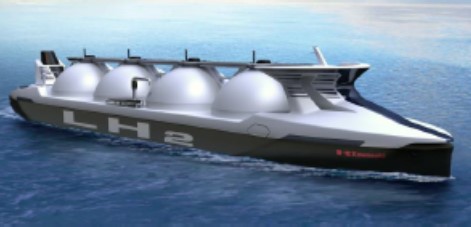-
International Maritime Organisation sets much improved decarbonisation targets
Date posted:
-
-
-
Post Author
Patrick LaveryCombustion Industry News Editor
-
-

The United Nations’ International Maritime Organisation has adopted a revised greenhouse gas emissions reduction strategy, featuring an “enhanced common ambition to reach net-zero GHG emissions from international shipping close to 2050” and a commitment to “ensure an uptake of alternative zero and near-zero GHG fuels by 2030”.
The targets include 2030 targets to have reduced the average GHG emissions “per transport work” by 40% compared to 2008 levels, for total shipping emissions to be 20-30% lower than 2008 levels, and for zero or near-zero fuels to make up 5-10% of the energy used in shipping. By 2040, total GHG emissions from shipping is to be 70-80% of those in 2008.
The strategy also calls for “a goal-based marine fuel standard regulating the phased reduction of the marine fuel’s GHG intensity” and an “economic element, on the basis of a maritime GHG emissions pricing mechanism” to be created to help achieve the high-level targets.
One imagines that the latter would be fairly difficult to administer, though not impossible (in fact, if it worked on an international basis, it could provide a template to make other carbon trading more international); there is also an allowance to take into account “different national circumstances”.
The new strategy is a significant milestone, with shipping previously lacking a target resembling net-zero by 2050. However, it has not been without criticism, as the BBC reports. Madeline Rose from the Pacific Environment campaign group said that the new strategy “will see the shipping industry exhaust its 1.5C carbon budget by 2032”.
Concern must also come around allowances for different countries’ circumstances, given that many ships are registered in states such as Marshall Islands, Liberia and Panama.
